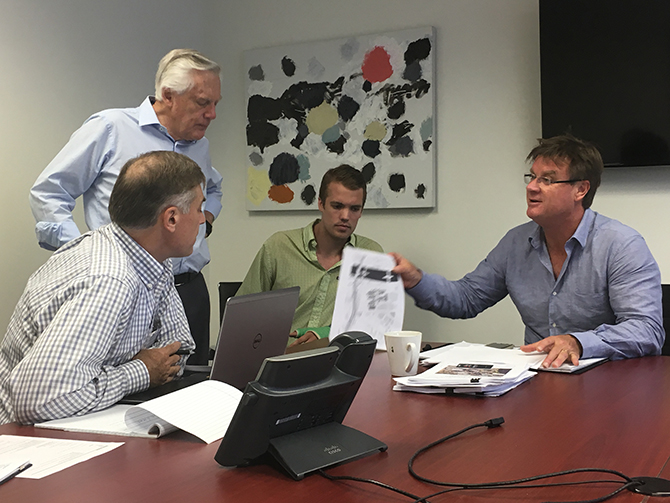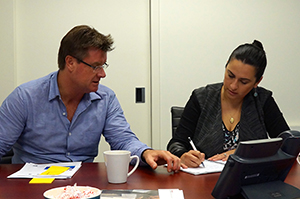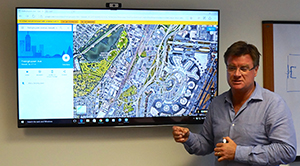REAL ESTATE SPOTLIGHT

By Daniel J. Bollinger
New York Lifestyles Magazine recently caught up with Angus Reed of Lotus Equity Group, a New York‐based real estate development, and investment firm, where senior professionals have a proven ability and commitment to delivering superior risk-adjusted returns to investors. Lotus was established with the purpose of pursuing the following:
• Investment and development opportunities in the New York City metropolitan area.
• Investment in Class B/C multi-family reposition opportunities.
• Launching a hotel development platform based on modular technology.
Lotus’ cross-cultural expertise and innovative thinking is a key advantage and has led its principals to a proven record working successfully on high profile projects with businesses, communities, and governmental agencies. We had the chance to ask Angus a few questions about real estate and his experiences.
How did you become interested in the real estate development business?
My father was a developer, and I grew up going to sites with him; it’s how I became passionate about development. I especially remember seeing a Sugar Plantation that he bought in Queensland, Australia and redeveloped into a housing subdivision. That made a huge impression on me. I saw the cane being burnt one year and the next year the development was well underway, and you could see houses on the lots. It was the first time I realized that essentially any present place could, with the right vision, be completely made over into something else. I saw my father take projects from an idea to reality, and I thought that seemed like fun.

What is the primary challenge in growing Lotus Equity?
I would say our main challenge is hiring the right people quickly enough to execute on our vision, of creating technologically sophisticated housing at an affordable price. We are looking for the absolute best analysis, execution, and acquisition specialists.
Tell us about your business and your typical day.
Lotus Equity is dedicated to high-profile projects, quality projects, especially in the New York metro area. One of the most exciting projects we are working on right now is the redevelopment of the old Bears Riverfront Stadium in Newark into a mixed-use residential and high-rise commercial complex that will be an important part of the city’s revitalization. The development will be a technology-focused mixed-use community focused on the millennial market and create a 24/7 downtown destination for companies, residents, and visitors. Currently, we are in the process of completing the master plan and will be announcing that soon.
I spend a lot of my time fundraising capital for Lotus’ projects. I start my work with our European partners at 5:30 AM. After that, I try to hit the gym, and go to my office or to check in on a project or meet with investors. I work late into the evening with my Australian office on our hotel project, and usually, my day ends at 8:30 PM when I have dinner at home with my wife.

What do you see as a leading trend/challenge in development in the tristate area?
In New York, of course, the drive to more affordable housing is an essential part of the multifamily market and will continue to be a trend. The last two mayors have made this a priority, and I don’t expect that to change anytime soon. The desire for technologically sophisticated living is currently a focus of development, and this will continue.
What I think could be a related trend is the increased use of disruptive construction techniques, such as modular, to stand up these projects quickly at a lower cost. Modular, where building components are built offsite and then put together like giant Legos onsite, is a much more general construction technique outside of the US. There are lots of advantages to New York, but right now, developers have only dipped their toe in with some exciting projects, such as The Stack, 461 Dean Street, and Carmel Place. Currently, construction is the least disrupted sector regarding new methods and technologies, so there is tremendous room for growth. But I think the challenge is getting more of the city’s real estate industry interested in implementing these projects.
What is your advice to someone getting into the real estate development business?
I would say that they need a certain tenacity, coupled with the flexibility to succeed. You don’t need a specific education, it is possible to learn on the job, and many great developers have done just that. However, you will need to be able to get an understanding of a wide array of disciplines including construction, design, fundraising, urban development, building regulations and market trends. I have found the best professionals are excited by the prospect of learning new things and are always challenging themselves.





